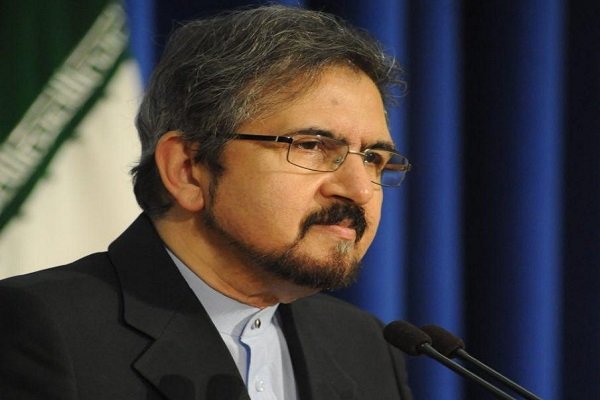“All the domestic conflicts in Yemen can be settled through a framework for dialogue to prevent the enemies of Yemen to take advantage of the situation,” said Bahram Ghasemi on Sunday.
The spokesman of the Iranian ministry of foreign affairs made the remarks in reaction to recent developments in Yemen.
Referring to the “continuous brutal aggression of foreigners aiming the total destruction of infrastructures, all-out blockade, and mass and quiet murder of Yemeni nation,” Mr. Ghasemi voiced hope for the convergence of all political parties and movements in Yemen to form a united front against foreigners’ aggression.
Expressing disappointment over the recent feud, the Iranian diplomat called all Yemeni forces to exercise restraint.
The diplomat’s remarks came after violent clashes broke out between forces loyal to ex-president Ali Abdullah Saleh and Houthi fighters the capital Sana'a.
Since March 2015, the Saudi regime has been heavily bombarding Yemen as part of a brutal campaign against its impoverished southern neighbor in an attempt to reinstall Yemen’s former President Abd Rabbuh Mansur Hadi, a staunch ally of Riyadh, and crush the popular Houthi Ansarullah movement, which is in control of large parts of Yemen, including the capital. The Saudi campaign, however, has failed to achieve its goals.
Over the past two years, Houthis have been running state affairs and defending Yemeni people against the Saudi aggression.
Latest figures show that the war has so far killed over 12,000 Yemenis and wounded thousands more. The Saudi aggression has also taken a heavy toll on the country's facilities and infrastructure, destroying many hospitals, schools, and factories.
Certain Arab countries, including the United Arab Emirates (UAE) and Bahrain, are key partners to the campaign, which lacks any international mandate and has faced increasing criticism.
Saudi Arabia has also imposed a total embargo on Yemen, causing severe shortages of food and medicine. A recent cholera epidemic has been blamed on those shortages.
Saudi Arabia has been incessantly pounding Yemen in an attempt to crush the Houthi Ansarullah movement and reinstate former President Abd Rabbuh Mansur Hadi, who is a staunch ally of the Riyadh regime.
Thousands of civilians have died in bombing raids and around one million children are facing starvation and serious illness as a result of the conflict.
A former Tory cabinet minister has said that the UK is being “dangerously complicit” in the Saudi war policy toward Yemen.
Britain’s sales of military equipment to Saudi Arabia hit £1.1 billion in the first six months of this year, according to the latest government data.
The UK sold £836 million worth of arms and military hardware to the Saudi kingdom between April and June, up from £280 million between January and March, according to statistics by the Department for International Trade (DIT).
YNG/ 4162214


























Your Comment